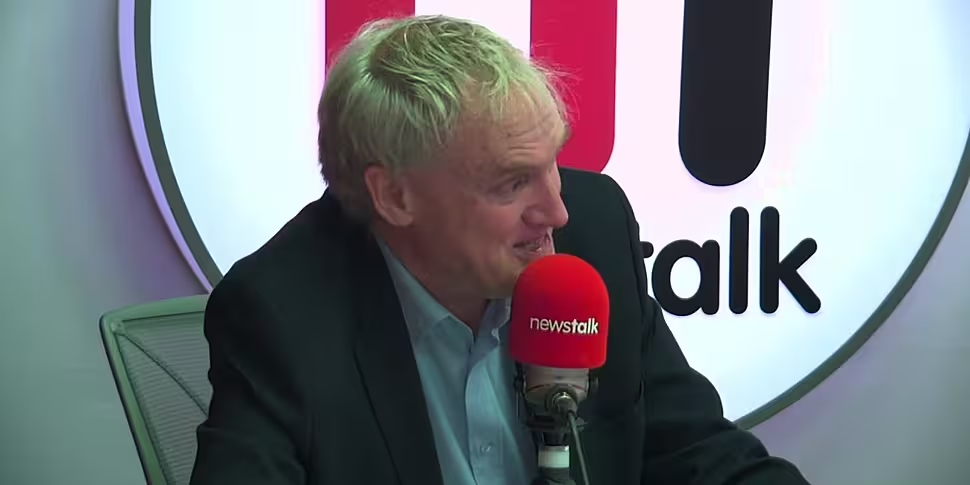Luke O'Neill says air filtration systems would be a better approach than shutting nightclubs.
The Trinity College professor also says data suggests a COVID-19 booster campaign can stop the fourth surge of the virus.
He was speaking as a study from the UK showed the virus was almost completely eliminated from the air of a surge ward at Addenbrooke's Hospital.
In the ward, during the first week before the air filter was activated, researchers were able to detect COVID-19 on all sampling days.
Once the air filter was switched on and run continuously, the team were unable to detect the virus on any of the five testing days.
They then switched off the machine and repeated the sampling - again, they were able to detect COVID-19 on three of the five sampling days.
Luke told The Pat Kenny Show this would be a better way to go.
"Filtration is a much better strategy than, say, closing nightclubs to stop this damn virus. And yet we seem to be slightly behind the curve.
"I know ventilation is in place in some places, but again the evidence grows.
"This is an airborne disease - if it was waterborne, you'd clean the water."
On the study, Prof O'Neill says: "They installed these air filtration devices in what are called surge wards.
"In the UK, the ICU is filling up - and this is our fear here - and they put patients in a separate ward, and that mightn't be as good as the ICU ward.
"So they're cleaning the air in those wards and then they're measuring the virus.
"And installing these filtration devices, they could detect no virus in that room.
"It exchanges the air five to 10 times an hour, so they're very high throughput obviously. But still you can clean the air in a room, get rid of the virus.
"And in the case of a surge ward with very sick people this is extremely useful".
And he says guidance around which filters to use would be helpful.
"They're slightly more sophisticated because they are hospital grade air filtration units.
"This got to zero, which is a great result - but any filtration system would benefit the room.
"I suspect what we need there is clear guidelines... in other words, these are the filters to use.
"They can't be that expensive, these HEPA filters aren't especially expensive in devices.
"And wouldn't it be great if we had one of these in each classroom in Ireland, or wherever - yet another weapon to use against the virus".
Booster campaign 'can stop this surge'
Referring to data from Israel, Prof O'Neill says Ireland needs to get a booster campaign out as quickly as possible.
"They've four million people now boosted, and they've broken the fourth surge.
"Case numbers have fallen from 6,000 a day down to 94; 44 deaths down to seven.
"So in a way, you can now configure the booster campaign as a way to stop this surge.
"Hence the need... to get the boosters out as quickly as we can... They've done it, we need to follow suit as quickly as we can.
"After you've had your third shot, it takes about seven days to kick in, on average, and then off you go - you're protected."
After a booster, Israeli data suggests people will be protected "for a minimum of 10 to 12 months".
"If that holds up, and it's probably true, it becomes like the flu vaccine: every winter, the vulnerable and the older will be given a COVID vaccine as we predicted anyway.
"But now the data would suggest you should get about a year's protection after your third shot.
"As we've said before, this is now a three-shot vaccine - effectively.".
And Prof O'Neill says we are still learning as we go.
"We couldn't have predicted this at the start, because it was a new vaccine.
"Other vaccines get modified based on data, historically - sometimes you need three instead of two, and so on.
"This is just like that, and now we're using that science to inform what we should do".









